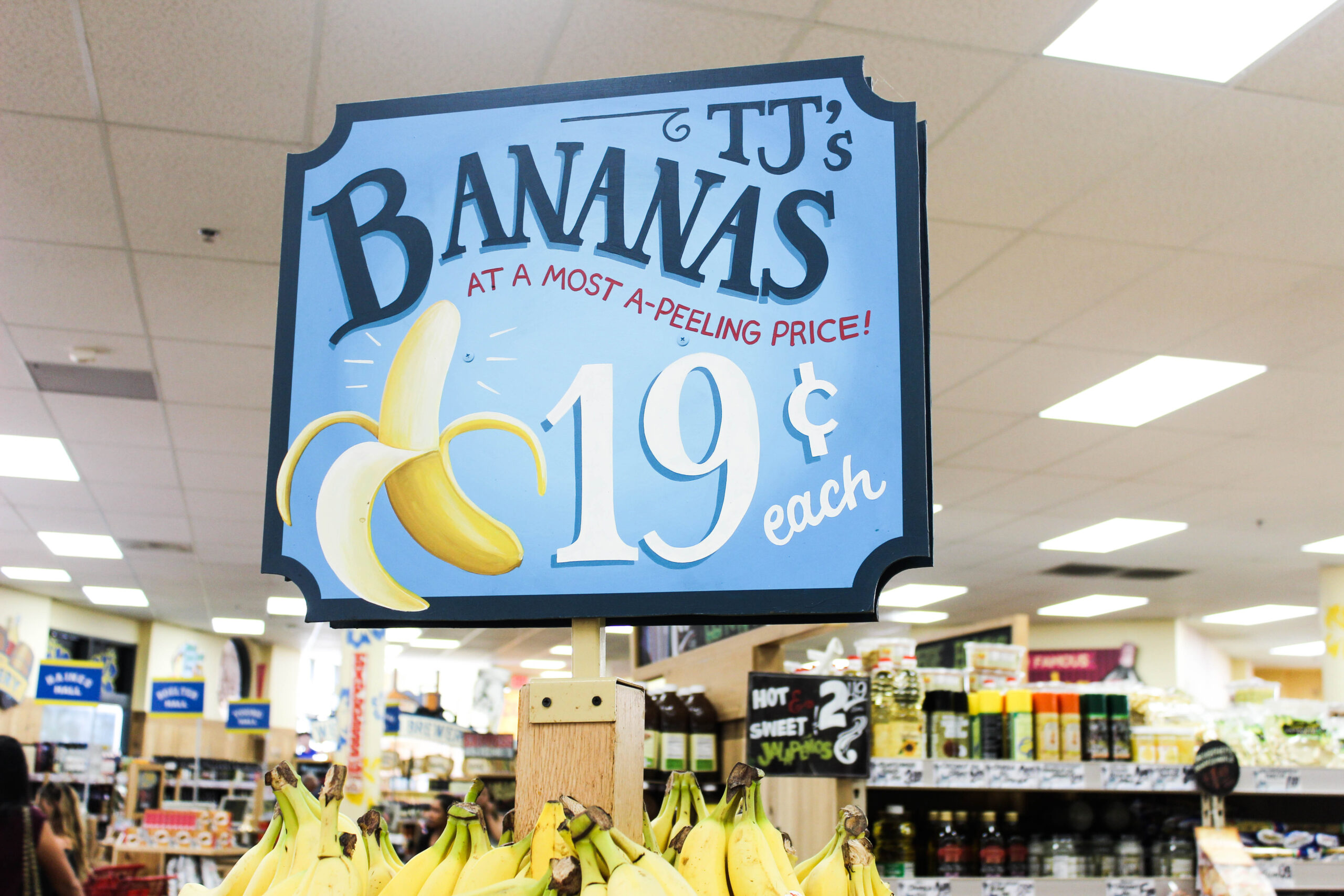
MONEY PROBS. We all have ’em. The majority of the college-aged population is on a tight budget, and that can be very restricting in a number of ways. One example? Food.
Here’s the thing, though. When people say, “Eating healthy is too expensive,” I’m like, “Kind of, but kind of not.” A lot of people say eating healthy is expensive, so they go out to eat for every meal. Cooking your own food is much less expensive than eating out, so in that case, eating healthy is cheap. On the other hand, organic food is more expensive than non-organic. However, in-season produce is pretty cheap compared to all of the packaged convenience foods most people like to buy. So again, in that case, healthy food is less expensive than unhealthy food. Buying a bunch of veggies and some meat from the store, cooking it, and putting it together as a meal is going to end up being much cheaper than buying a pre-made meal from the frozen section. It will also be a million times healthier.
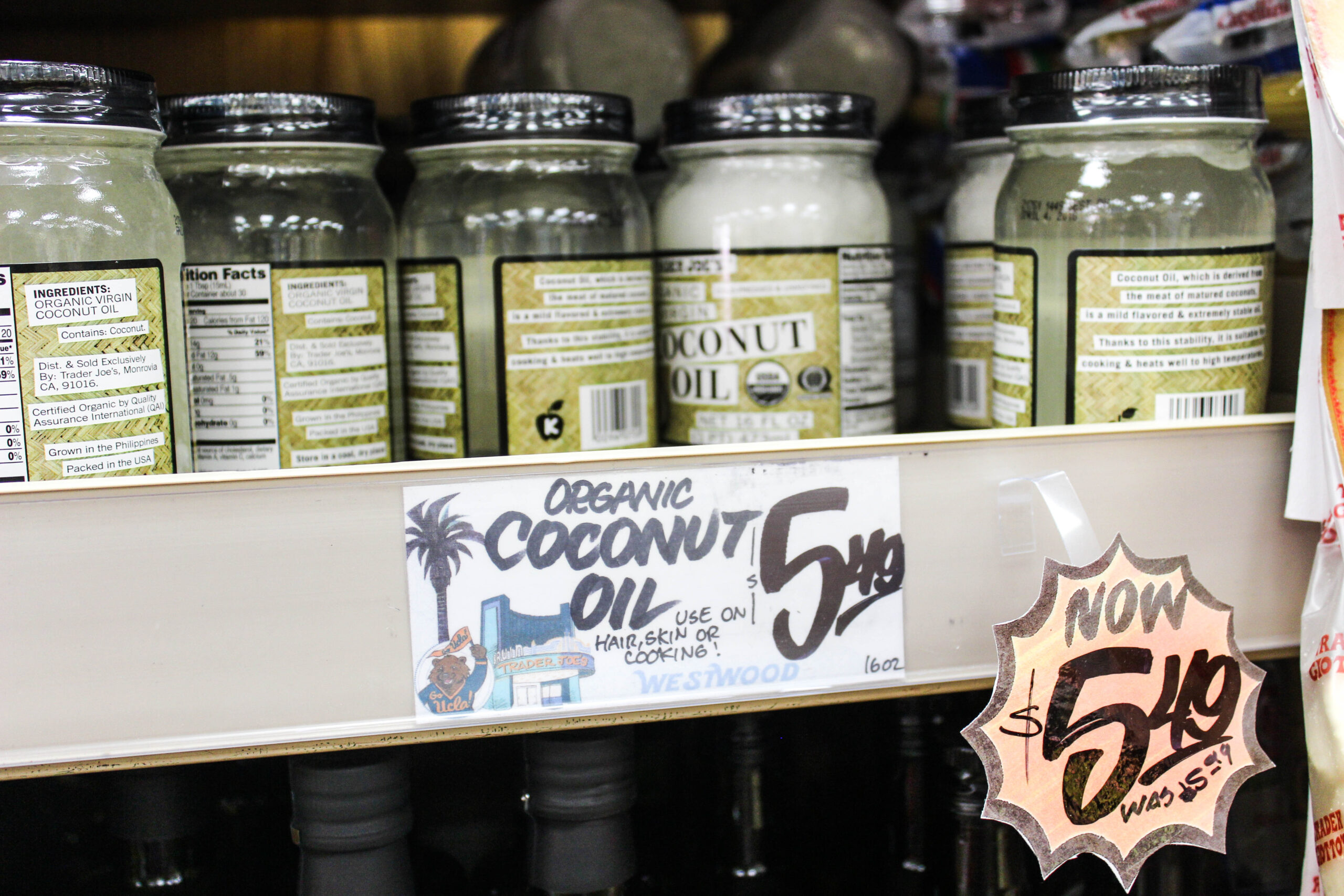
Let’s put things in perspective. I eat a lot more food than most people do (like two or three times as much…just ask my roommates) on a daily basis. On a week when I’m grocery shopping at Trader Joe’s, I’ll spend about $80-90 to get enough food for a week. Let’s just round that up to $100 for convenience. Let’s say I eat about four main meals a day (which is less than what I normally eat), 7 days a week – that’s about $3.50 a meal. That’s not very expensive. And by rounding my numbers, that’s a higher price per meal than what my meals actually are. And that’s on a week when I’m not worrying about a budget – everything is organic, I’m buying things that are out of season, etc. So if I was paying attention to those things, I would be spending even less on groceries. So no, it’s not as cheap as a dollar hamburger from McDonald’s, but $3 isn’t too shabby.
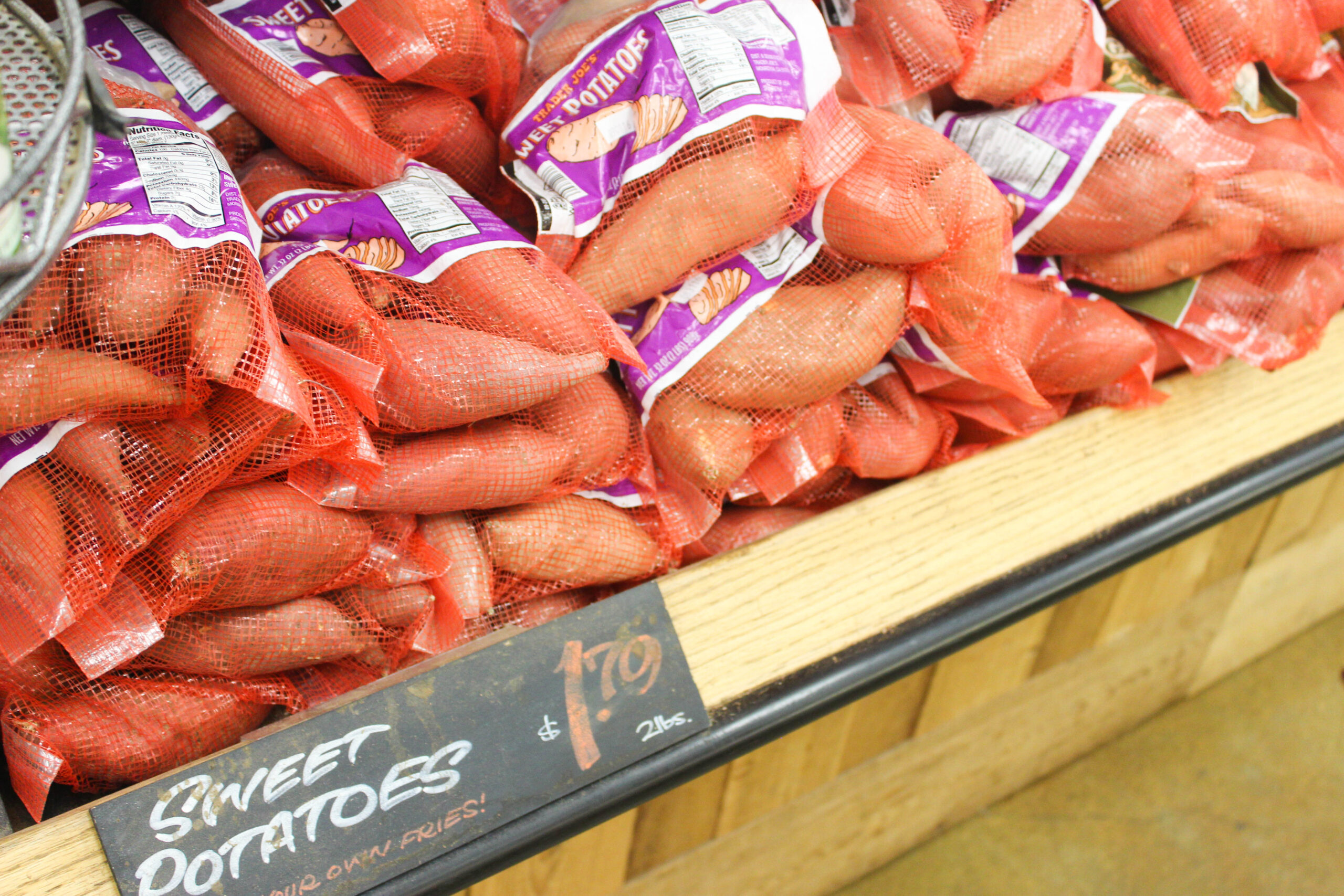
Also, spending a little more on healthy food now is going to save you a lot of money in the long run. A healthy diet now will prevent poor health later. Poor health later might mean thousands of dollars in medical bills. INVEST IN YO’SELF.
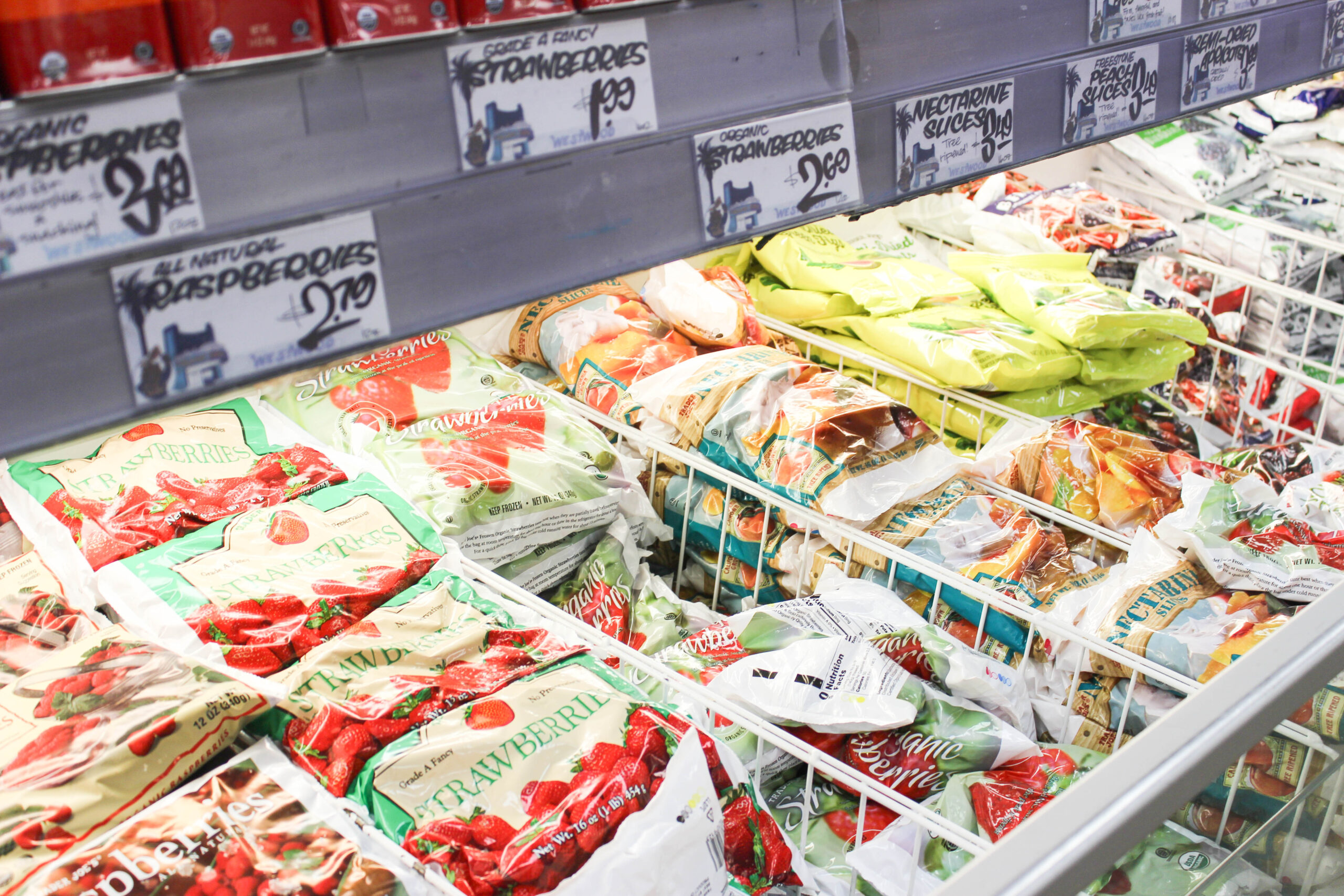
My point is, buying healthy foods while on a tight budget can definitely be done! It just takes a little planning and a little thinking. Here are some tips for saving money while eating healthy on a college budget:
- As previously mentioned, eat out less often. There are so many people who complain about not having enough money for food (and other things), but they eat out for the majority of their meals. Cooking for yourself is much cheaper, and it’s healthier. Win win. When you’re cooking for yourself, you’re probably (hopefully) not throwing in unnecessary sugar and highly processed oils. Be honest with yourself here. If you’re that person who is on a tight budget but you’re not willing to give up daily restaurant excursions with your friends, then that’s your own fault!
- Budget and plan ahead. Figure out your budget before you go shopping, and make a grocery list ahead of time. What foods do you need this week? What sources of protein do you want to eat? Fats? Carbs? Veggies? Fruit? Make a list and stick to it. If you go into the store with a specific list, you’re less likely to grab unnecessary things while perusing. We’ve all been sucked into that trap before. I mean, those chocolate chip cookies always look so tempting…Plus, right now everything pumpkin-flavored is being released. CONTROL YOURSELF.
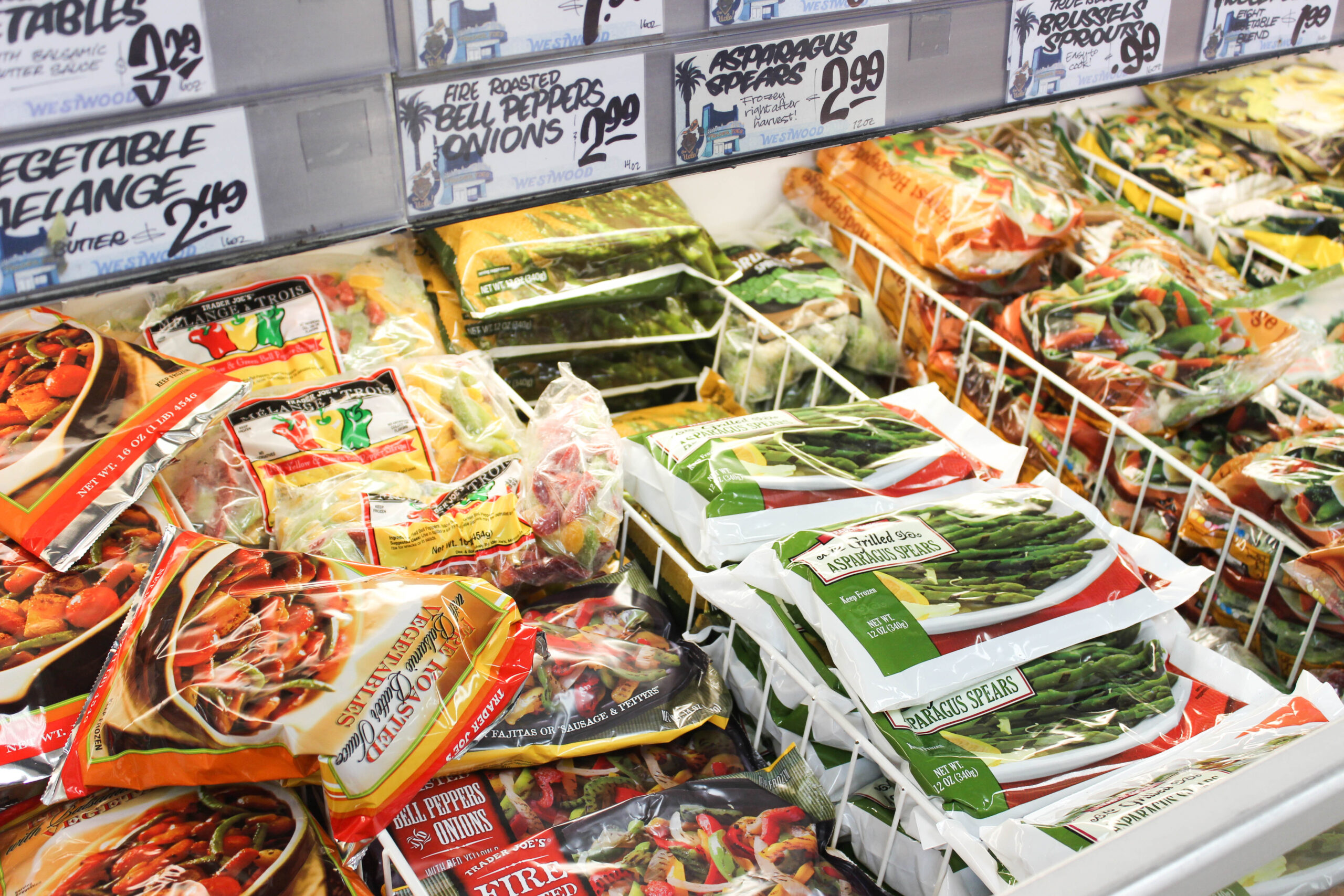
- Go grocery shopping after you eat a meal. If you go grocery shopping when you’re hungry, the hunger monster will make you want to buy everything, and you’ll buy things you don’t need.
- Choose wisely when it comes to grocery stores. In my neighborhood, there’s a Whole Foods, Ralph’s, and Trader Joe’s. If you’re on a tight budget around here, then Ralph’s and Trader Joe’s are your best options. There’s also a 365 somewhat nearby, which is a discounted Whole Foods, and that’s another great option for people in my area. Look up which grocery stores are closest to you and choose the stores that have cheaper prices overall. Even Target can be a great place to get groceries (as long as you choose the right foods).
- Sign up for rewards programs and grab coupon books. A lot of grocery stores have rewards programs that give you cash back or discounted prices if you sign up for their card / a membership — DO IT. (I don’t mean a credit card, I mean a membership card.) Some stores also have little coupon books, so grab those. Go through the coupon books, take out any coupons you might use, and stick them in your wallet so they’re already there the next time you go grocery shopping.
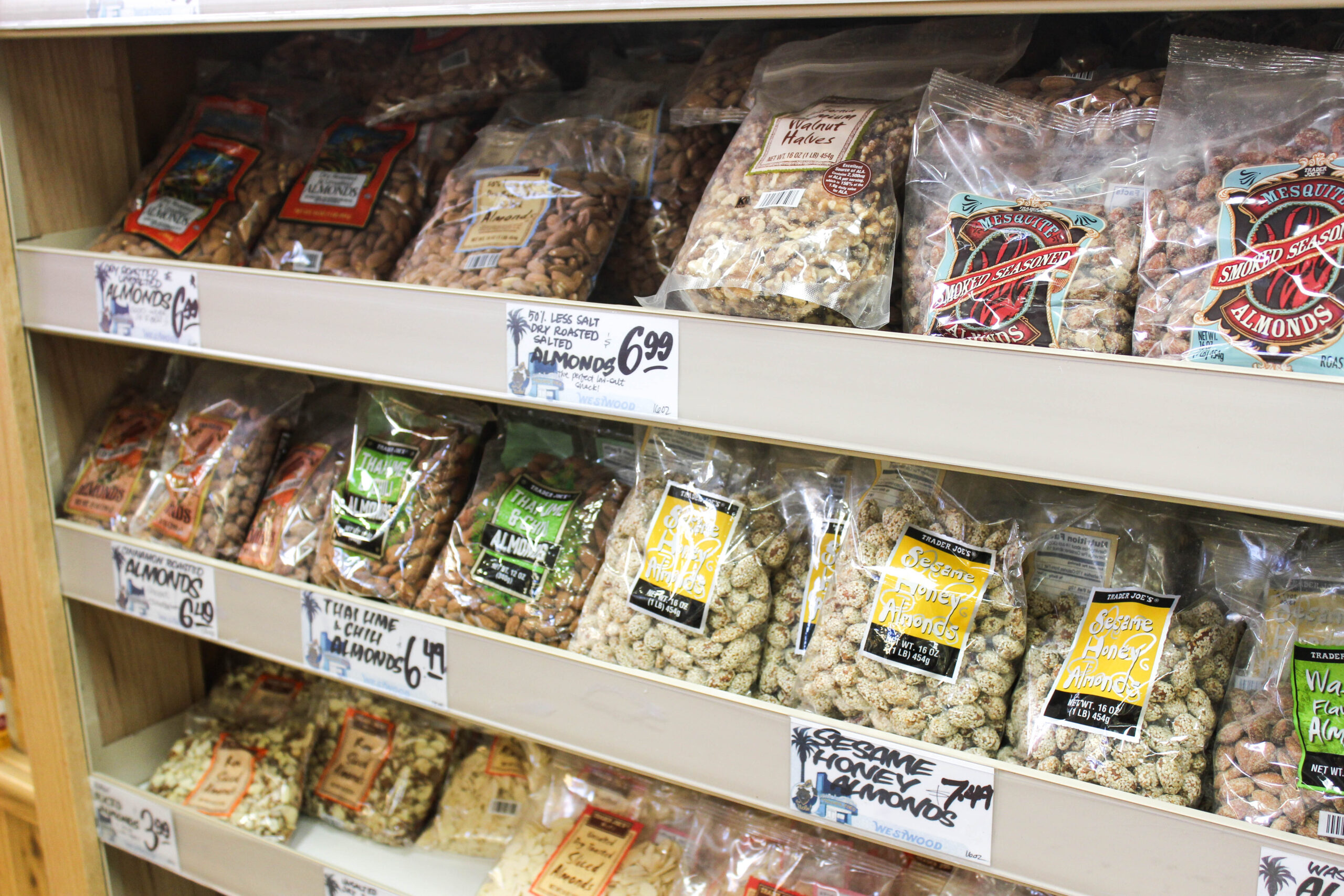
- Look for sales. I feel like this is pretty obvious, but it still needs to be said. It also makes your decision process easier when choosing what to buy. If something is on sale that’s non-perishable, stock up on it while you can get a good deal. For example, I always stock up on nut butters, nuts, coconut oil, canned coconut milk, olive oil, vinegars, and spices when they’re on sale because I know I’ll need them eventually and they won’t go bad.
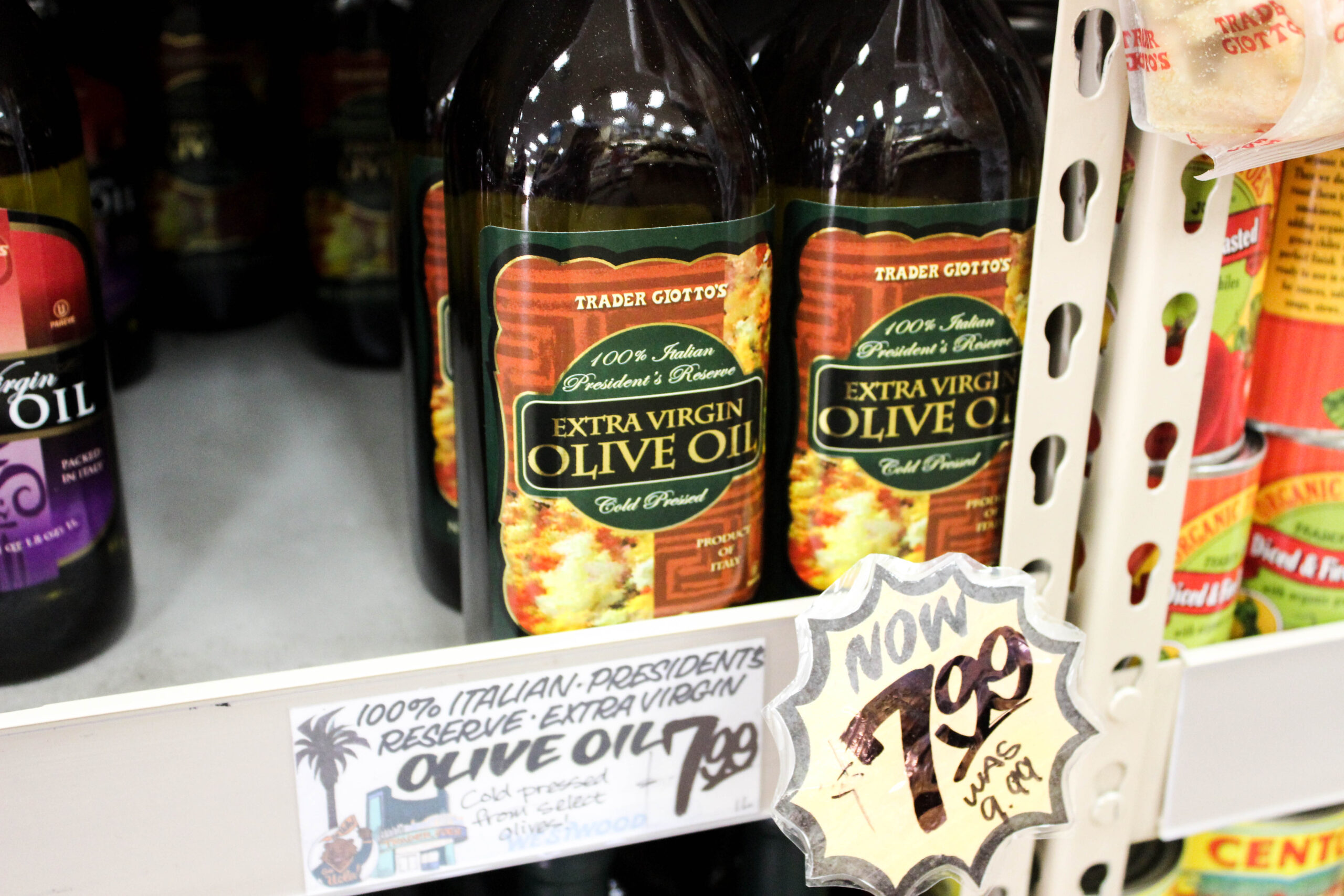
- Check to see if there’s a clearance section in your grocery store. The Ralph’s near my apartment has a clearance produce section where they put the “ugly looking” produce, and they sell it for a reduced price. For example, they put the ripe bananas over there. If your grocery store has a reduced price area, make sure you check there first when buying produce – you might luck out!
- Utilize the frozen section. The frozen section is a gift from heaven. Frozen food is much cheaper than fresh food, and it’s also on sale pretty often. Frozen meats and veggies are lifesavers. First of all, dealing with frozen food is easier because you don’t have to worry about it going bad. Frozen fruits and veggies are also oftentimes even better for you than fresh produce because those fruits and veggies are frozen right when they are at peak ripeness (which is when they have their highest nutritional value), while some of the non-frozen produce might be old. Just make sure you check the ingredients when you pick things out – it should just be whatever fruit, vegetable, or meat is inside, with no added sugars or flavoring. You can cook frozen veggies just like normal ones – I like to steam or roast them. Thaw your chicken/fish/etc. and then roast it, cook it on the stove, throw it in the Crock-Pot, etc. Frozen fruit and frozen greens are also great in smoothies – thickens them up verrrrry nicely!
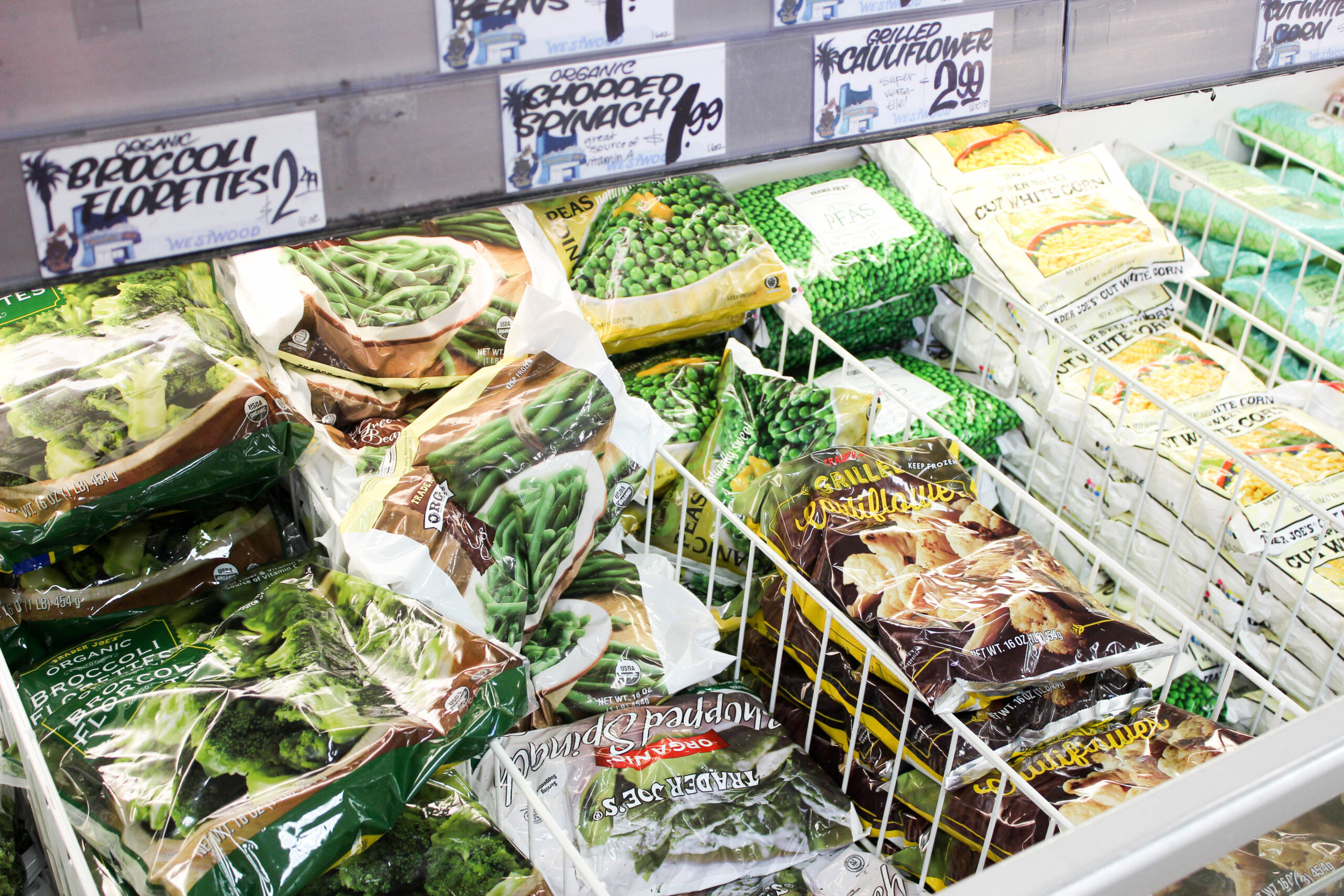
- Buy cheaper cuts of meat. Fattier cuts of meat are usually cheaper, and IN MY OPINION, (I’m about to rock your world) they’re healthier. Don’t be afraid of fatty cuts of meat. They will fill you up faster than lean meats, and those animal fats (as long as they’re from healthy animals) are actually good for you. WE NEED HEALTHY FATS IN OUR DIETS. I always choose bone-in, skin-on chicken over boneless and skinless. It tastes better anyways.
- Buy meat and fish when it’s on sale and freeze it. I depend on this, especially because I’m very high maintenance when it comes to my proteins. When wild-caught salmon is on sale, you KNOW I’m stocking up. I buy way more than I need, put it in a plastic bag and suck the air out of it, and freeze it until I’m ready to cook it. I do this with all kinds of fish, turkey, chicken, grass-fed beef, bison, buffalo, and so on. LOOK FOR THE SALES.
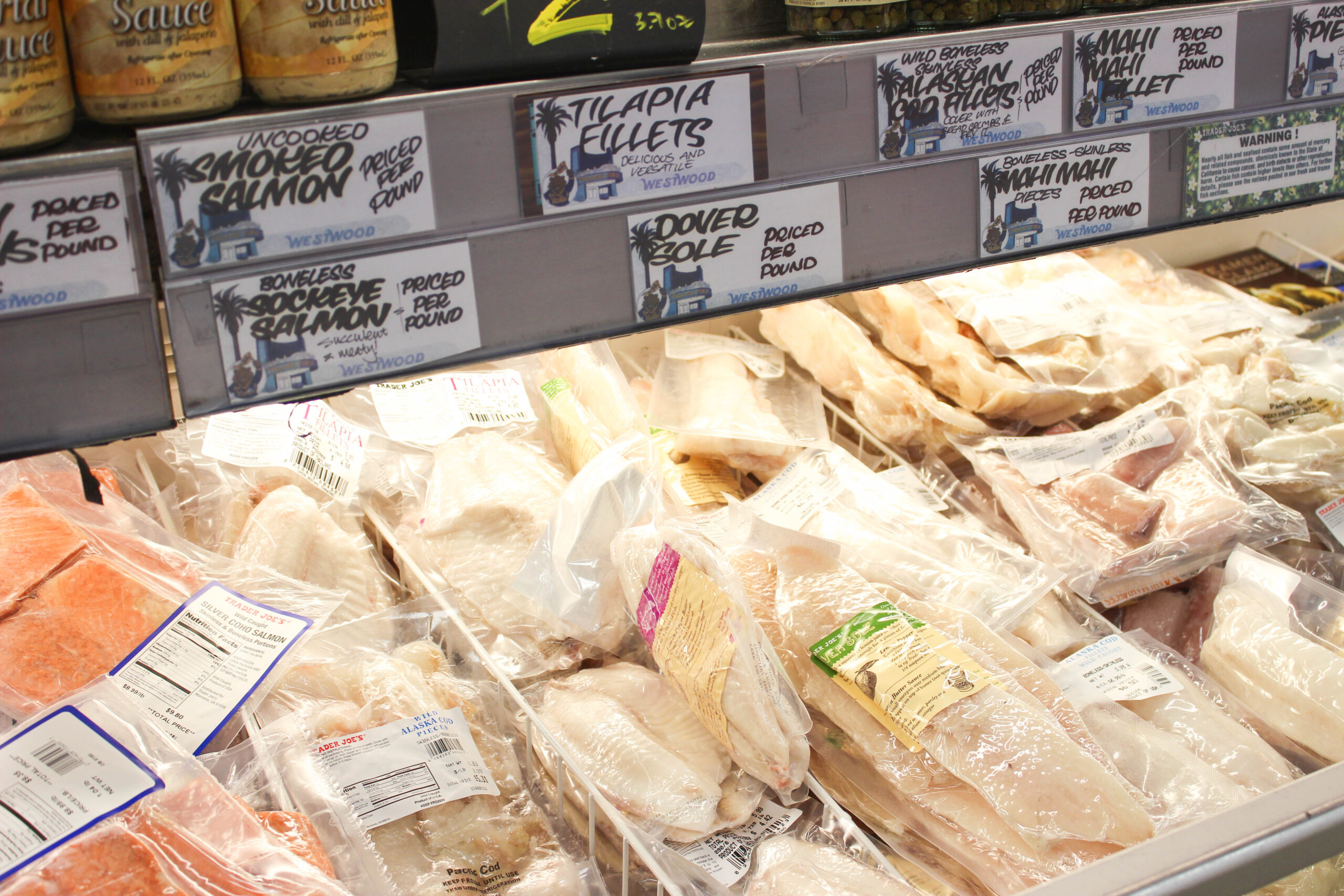
- Go for the healthy foods that are cheap in general. For example, eggs, nuts (raw, unsalted), chicken, lentils, quinoa, rice, canned fish, and oats are staple foods that are relatively inexpensive but pack a big punch in the health department. Besides eggs, those are also things that you can buy in bulk when they’re on sale, and you’ll save a ton of money.
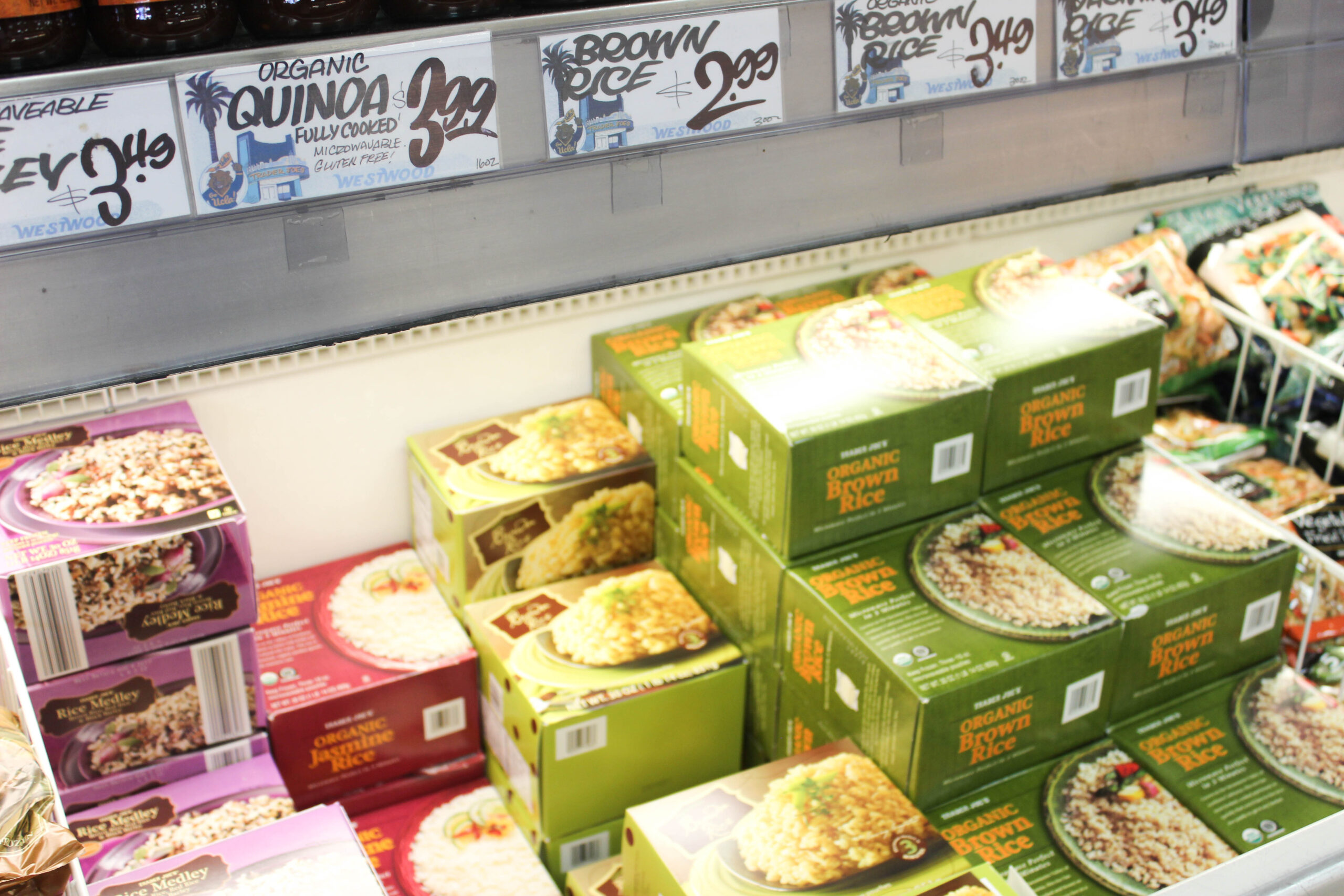
- Buy produce that’s in-season. It’s always cheaper. Sorry if you’re craving something totally out of season, but you’ll get over it if it means successfully staying within your budget.
- Choose cheaper fruits. Berries are always more expensive than other fruits, so avoid those if you’re on a super tight budget. Apples, bananas, and peaches and nectarines during the summer are all great options.
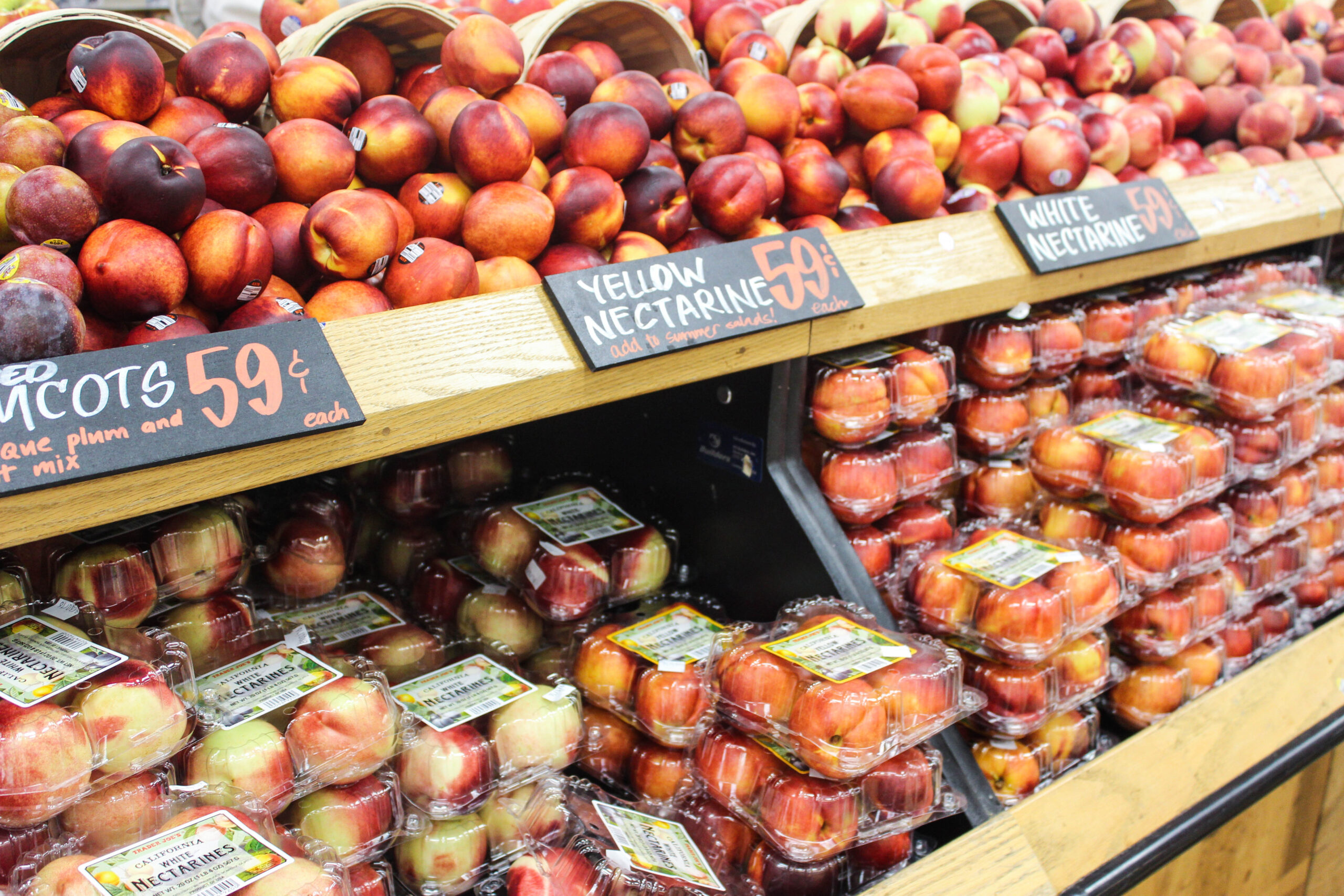
- Know when it’s okay to buy non-organic produce. I’m all about organic produce, but there are certain fruits and veggies that are usually safe to buy non-organic because little to no pesticides are used when they’re grown. These include asparagus, avocados, cabbage, cantaloupe, carrots, cauliflower, eggplant, grapefruits, kiwis, onion, mangos, onions, mushrooms, papayas, pineapples, watermelons, and sweet potatoes. Produce that you should always buy organic includes apples, peaches, nectarines, strawberries, grapes, celery, spinach, peppers, cucumbers, cherry tomatoes, potatoes, kale, regular potatoes, zucchini, blueberries, and collard greens. (Screenshot that for reference at the store!)
- Stock up on things that you’ll rarely have to buy but will hold you over in a pinch. A good protein powder (check the ingredients – make sure it’s not a sugar bomb) and nuts are things I always have in my pantry. Those are things that I don’t buy very often but will fill me up if I do run out of food.
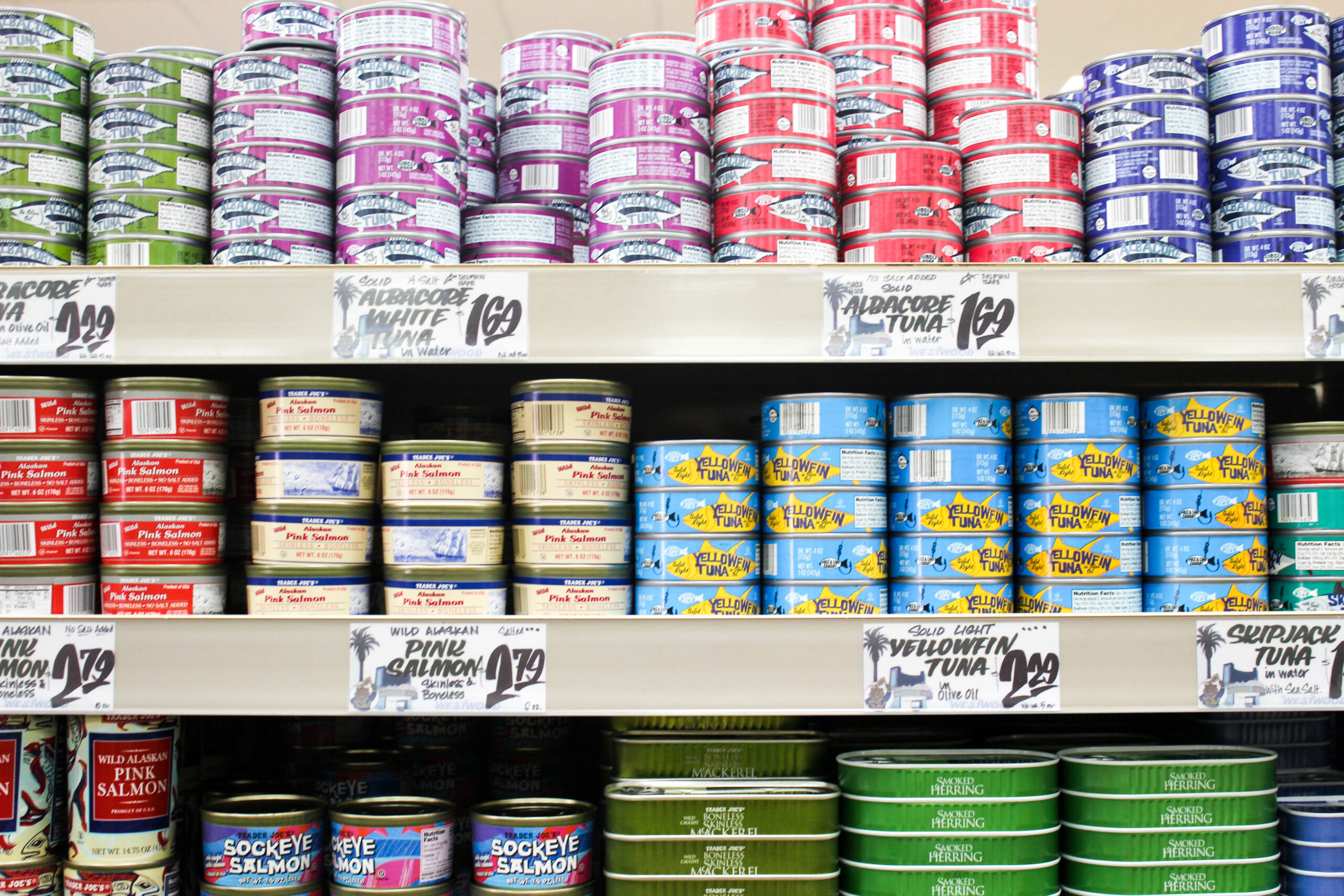
- Give up your unnecessary indulgences. This is probably the hardest thing for most people, but it’s the most important if you really want to save money. Doing this will also probably make you eat a lot healthier than you were before. You only need to buy what you need to survive. (That sounds dramatic, but I’m serious.) Sorry, but you don’t need that bottle of wine or pack of beer. You don’t need that carton of ice cream or box of cookies. And, dare I say it… you don’t need coffee. If you do, that’s a problem. Coffee is a money-sucker. If you don’t buy those treats, you won’t eat them (so you’ll be eating healthier automatically), and you’ll be saving money. If you have extra money in your budget and want to get some extras, then go for it. But if you’re struggling in the money department and wasting your precious funds on things you don’t absolutely NEED, then that’s your own fault. Sorry ’bout it.
- Go to the farmer’s market! Produce is usually cheaper there, and you’ll also be supporting local farmers. That’s the best. Another trick is to visit the farmer’s market close to closing time. The sellers usually want to get rid of whatever’s left over, so a lot of times they will give you a discounted price at the end of the day just to get rid of their food. Also, if you buy a lot, sometimes they’ll give you freebies!
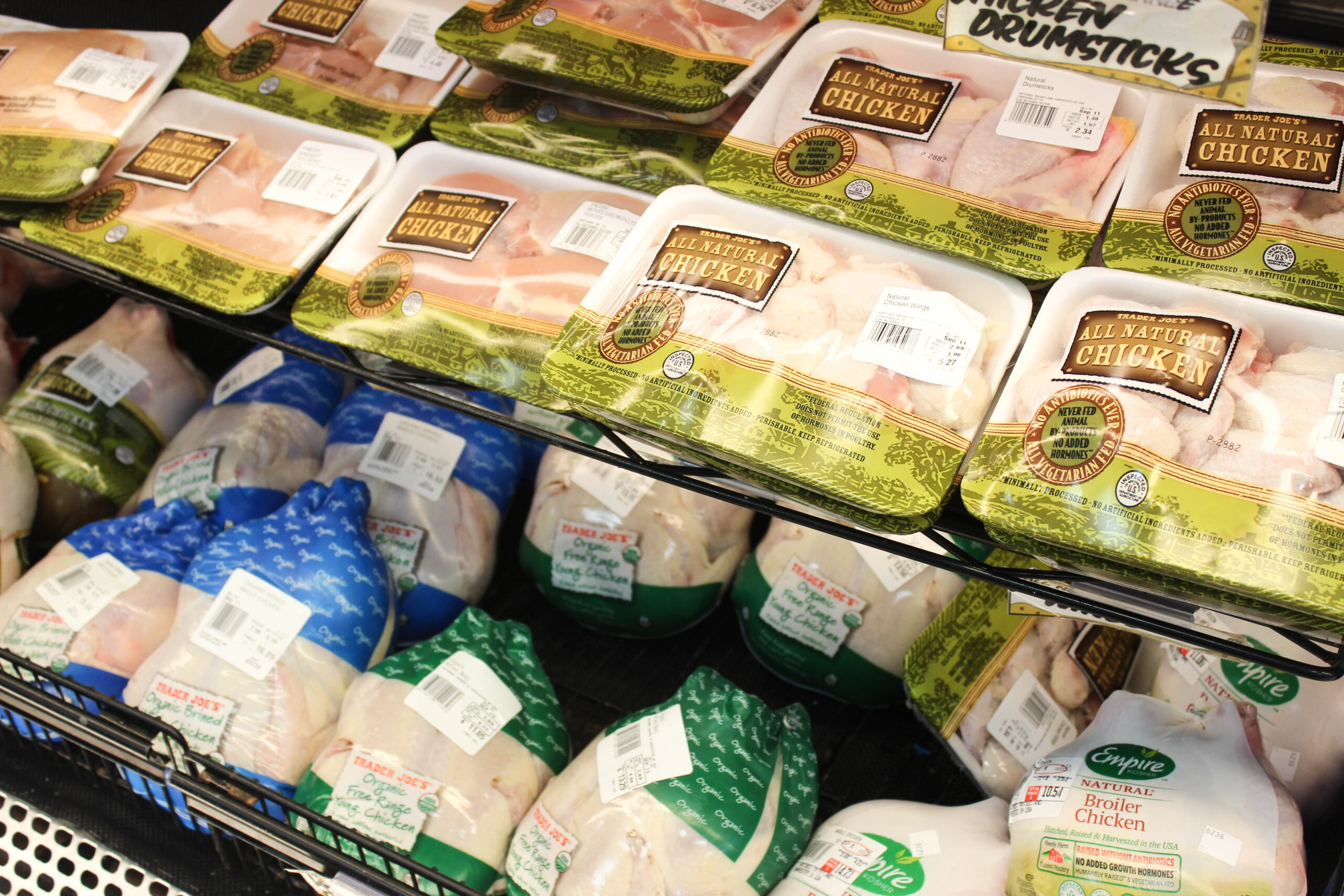
- Buy a Brita. Bottled water is expensive and a waste of money. Invest in a Brita and a water bottle, and you’ll end up saving a bunch of money in the long run.
- Utilize your leftovers. When you’re on a tight budget, every bit counts. Don’t ever throw food away. I will never understand why people do that. If you don’t finish a meal, save it (no matter how little is left) and eat it the next day.
I wish there was a magic wand I could wave to make all food ridiculously cheap, but sadly I can’t. Everything in this world costs something. Hopefully you picked up at least one trick for saving some money at the grocery store! Do you have any tips for eating healthy on a college budget? Do tell! XO


